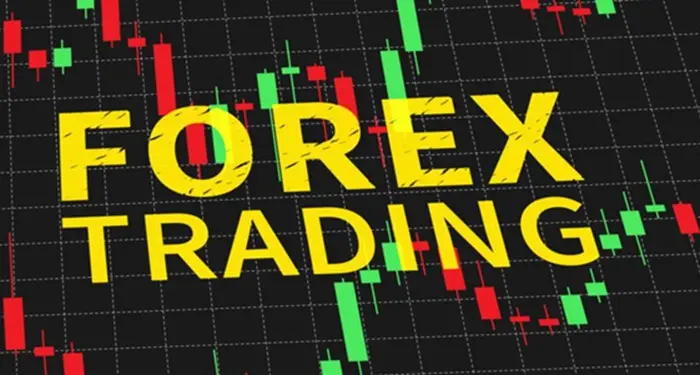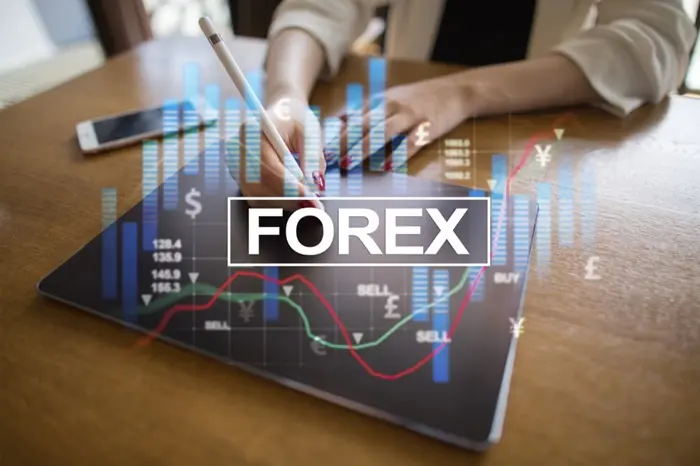In the world of forex trading, understanding the concept of spread is crucial for anyone who wants to succeed in the market. Whether you are a novice or an experienced trader, understanding how spreads work can help you make more informed decisions and ultimately improve your trading strategy.
In simple terms, the spread is the difference between the bid and ask prices of a currency pair. However, despite its simple concept, this spread plays an important role in determining the cost of executing a trade. This article will explain in detail what the spread is, how it is calculated, what factors affect the spread, and how the spread can affect your forex trading strategy.
What is forex spread?
Definition of spread
In forex trading, the spread is the difference between the price at which you can buy a currency pair and the price at which you can sell it. More specifically, when you place a buy order (also known as a sell order), you are buying at a higher price. When you place a sell order (also known as a buy order), you are selling at a lower price.
The spread is measured in pips (percentiles) and represents the smallest price fluctuation that a currency pair can make. For example, if the EUR/USD currency pair is quoted at 1.1000/1.1003, the spread is 3 pips, as the difference between the bid price (1.1000) and the ask price (1.1003) is 3 pips.
Spread Types
There are two main types of spreads in Forex trading:
1. Fixed Spreads
Fixed spreads mean that the difference between the bid and ask prices remains constant regardless of market conditions. This type of spread is usually offered by market makers and is predictable, making it easier for traders to predict entry and exit costs. Fixed spreads can provide stability, especially during periods of low volatility.
2. Floating Spreads
Floating spreads change depending on market conditions. During periods of high market volatility, such as major economic news releases or market events, these spreads tend to widen. Conversely, during periods of low market volatility, spreads may narrow. Brokers that offer floating spreads typically do so because they offer greater flexibility, allowing traders to benefit from lower spreads when markets are calmer.
Importance of Spreads in Forex Trading
Spreads directly impact transaction costs. Lower spreads mean traders can open and close positions at more favorable prices, reducing the overall cost of trading. On the other hand, higher spreads increase transaction costs, making it more expensive for traders to profit from small price movements. Understanding spreads is crucial as it can have a significant impact on your overall trading strategy and profitability.
How Spreads Are Calculated in Forex
The Bid-Ask Price
The bid price is the price at which a trader can sell a currency pair, while the ask price is the price at which a trader can buy it. The difference between the two prices is the spread. This spread is usually expressed in pips, as mentioned earlier.
Example:
If the EUR/USD currency pair is quoted at 1.1000/1.1003, the bid price is 1.1000, and the ask price is 1.1003. The spread in this case is 3 pips.
It’s important to note that the spread is not the only cost of trading in forex. Traders may also encounter commission fees, depending on the broker, as well as other hidden costs like slippage. However, the spread is one of the most significant and visible costs that traders will encounter.
Calculating the Spread in Terms of Pips
The spread is measured in pips and is the simplest form of calculating the cost of entering a position in forex. One pip is equal to 0.0001 for most currency pairs, such as EUR/USD. However, for currency pairs that involve the Japanese yen, one pip equals 0.01 (e.g., USD/JPY).
Example 1: EUR/USD
Bid Price: 1.1000
Ask Price: 1.1003
Spread: 1.1003 – 1.1000 = 3 pips
Example 2: USD/JPY
Bid Price: 110.50
Ask Price: 110.55
Spread: 110.55 – 110.50 = 5 pips
How the Spread Affects Your Trade
Let’s say you’re trading with a broker that offers a 2-pip spread on EUR/USD. If you enter a trade by buying at the ask price of 1.1003, your position will already be at a loss of 2 pips because the price needs to move in your favor by more than 2 pips just to break even. Therefore, the spread represents an inherent cost that must be factored into the trading decision.
If the spread is wider, it will take a larger price movement to reach profitability. Conversely, if the spread is narrow, it takes less movement to turn a profit. For traders looking to profit from small price fluctuations, a tight spread is critical.
Factors Affecting Forex Spreads
The size of spreads in the Forex market is affected by a variety of factors. These factors can cause spreads to widen or narrow depending on market conditions. Here are some of the key factors:
1. Market Liquidity
The higher the market liquidity, the smaller the spreads will generally be. Liquidity refers to the ability to buy and sell an asset without causing large price movements. Major currency pairs, such as EUR/USD, GBP/USD, and USD/JPY, tend to have smaller spreads due to higher trading volumes. Conversely, exotic currency pairs involving less frequently traded currencies tend to have larger spreads due to lower liquidity.
2. Market Volatility
Spreads tend to widen during times of high market volatility. For example, during major economic events such as interest rate decisions, political unrest, or market shocks, spreads can widen significantly. This is because there is uncertainty and unpredictability in the market, which makes it more difficult for market makers to accurately price currencies.
3. Trading Sessions
The Forex market operates 24 hours a day, but liquidity varies depending on the time of day and when major trading sessions overlap. The overlap of the London and New York trading sessions is the most liquid time, during which spreads tend to be smaller. In contrast, during non-trading hours when there are fewer market participants, spreads may widen as liquidity decreases.
4. Broker Types
Different types of forex brokers offer different types of spreads. Market makers typically offer fixed spreads, which can be wide but predictable. ECN (Electronic Communication Network) brokers and STP (Straight Through Processing) brokers typically offer floating spreads, which can be tight but fluctuate depending on market conditions.
5. Economic Events and News
Economic data such as GDP data, employment reports, or central bank decisions can cause market volatility, which can widen spreads. During major news events, liquidity may temporarily dry up, making it more difficult for traders to enter or exit positions at the desired prices.
Spread vs. Commission in Forex Trading
While spreads are the most common cost of trading in forex, some brokers also charge commission fees on trades. It is essential to understand the differences between the two, as they affect the overall cost structure of your trades.
Spreads
As discussed earlier, the spread is the difference between the buy and sell prices of a currency pair. It is usually factored into the price that traders pay when executing a trade. The spread is a direct cost, and it is typically absorbed by the trader without additional charges. Spreads can be fixed or variable, and their size can vary depending on the currency pair being traded.
Commission Fees
Some brokers charge a commission on each trade, particularly those that offer tighter spreads, such as ECN brokers. This commission is often a fixed amount per lot traded or a percentage of the trade’s volume. For example, if you trade 1 standard lot (100,000 units of the base currency) on an ECN broker, the commission might be $3 or $5 per lot.
Comparing Spreads and Commission
A broker that offers tight spreads might still have a commission fee, which increases the cost of the trade. Similarly, a broker with wider spreads may not charge a commission, but the overall cost of trading could still be higher. Traders should consider both the spread and commission when evaluating the overall cost of trading with a particular broker.
How to Minimize the Impact of Spreads
Minimizing spread costs is crucial for traders, especially those who engage in scalping or short-term trading, as small price fluctuations matter. Here are some tips to reduce the impact of spreads on your trading:
1. Choose a broker with tighter spreads
Look for a broker that offers low spreads, especially during peak trading hours. Spreads are usually the smallest on major currency pairs such as EUR/USD, GBP/USD, and USD/JPY. Some brokers also offer low spreads during periods of high liquidity and news releases.
2. Trade during active market hours
Trade during the London and New York overlap hours, when market liquidity is highest. During this period, spreads are usually the smallest due to the large number of market participants.
3. Use limit orders
Using limit orders instead of market orders can help you avoid entering the market at unfavorable prices. Limit orders allow you to specify the entry or exit price of a trade, potentially reducing the impact of spreads.
4. Be aware of volatility
Avoid trading during periods of high market volatility, such as during the release of major economic news, as spreads may widen at this time. Instead, try to trade during quieter market periods when spreads are more predictable and manageable.
5. Trade Liquid Currency Pairs
Trade the most liquid currency pairs (such as EUR/USD and GBP/USD) as these pairs typically have the smallest spreads. Exotic currency pairs or currencies that are less frequently traded typically have wider spreads, which can increase your trading costs.
Conclusion
Spreads are a fundamental concept in forex trading and understanding them is essential to effectively managing your trading costs. Spreads represent the difference between the bid and ask prices and play a key role in determining the overall cost of executing a trade. While spreads can be fixed or floating, they are affected by a variety of factors including market volatility, liquidity and broker type.
By understanding how spreads work and how to minimize their impact, traders can make more informed decisions and increase their profitability in the forex market. Remember, choosing the right broker, trading during the best trading hours, and selecting liquid currency pairs can help reduce spread costs and increase the efficiency of your trading strategy.



































